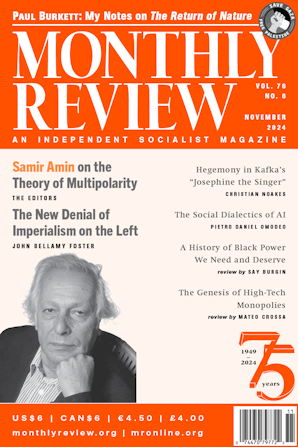Also in this issue
Books by Paul Burkett
China and Socialism
by Martin Hart-Landsberg and Paul Burkett
Article by Paul Burkett
- Eleven Theses on Music
- Value Isn't Everything
- An Eco-Revolutionary Tipping Point? Global Warming, the Two Climate Denials, and the Environmental Proletariat
- China, Capitalist Accumulation, and Labor
- Marx's Vision of Sustainable Human Development
- China and Socialism: Introduction
- Fusing Red and Green


